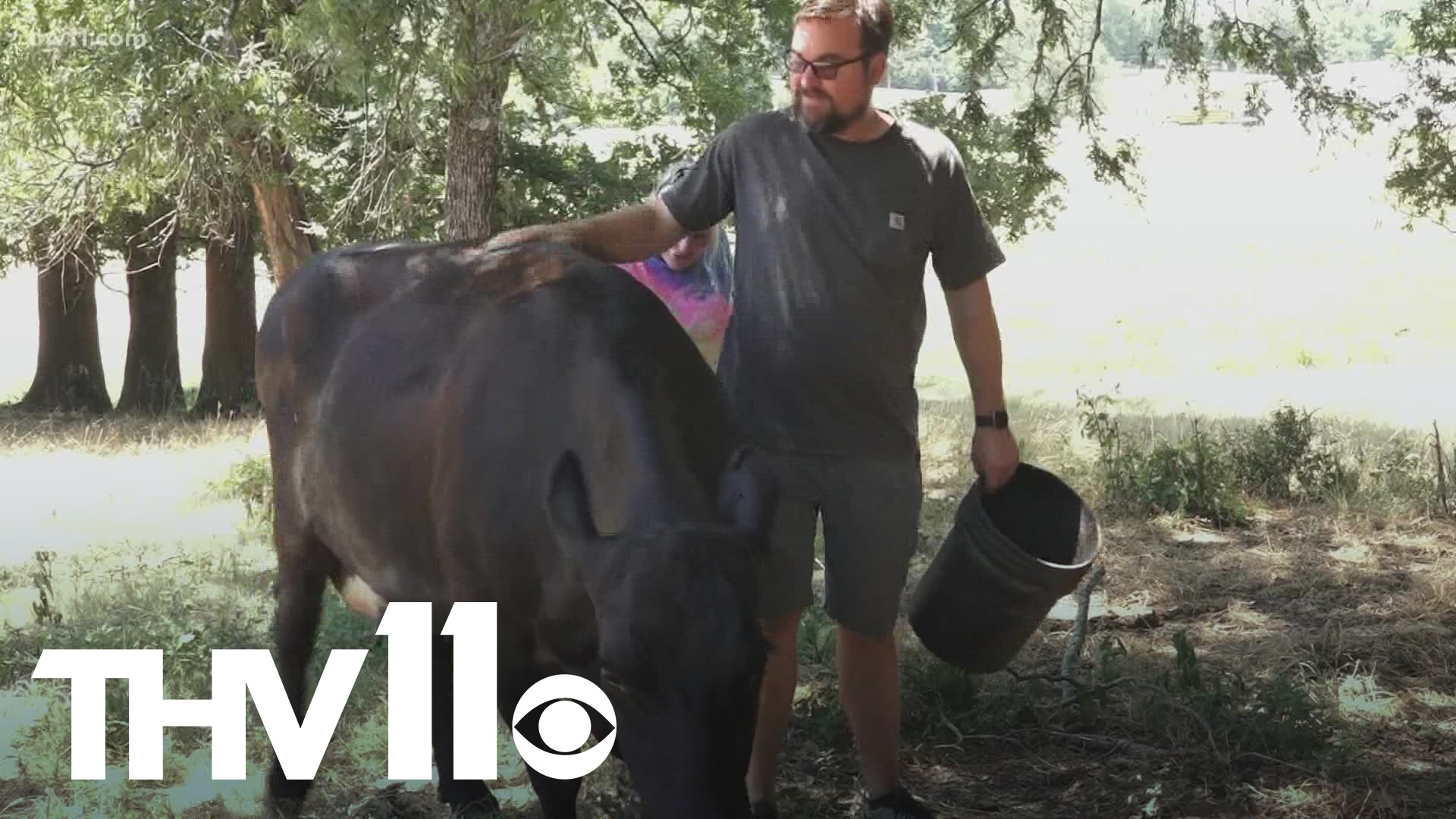CONWAY, Ark. — The long stretch of hot and dry days that we've been in has taken a toll on Arkansas farmers.
It has been extremely difficult for them to grow grass and hay. To help keep their animals fed, they have had to make some changes.
Farm manager, and owner at Flying C Ranch, Michael Lee said, “everything is based on mother nature and the weather, and right now it's not real friendly.”
The fact there has basically been no rain lately, has meant that there's been less grass for cows to eat.
“Right now that is the number one stress for me is when I drive out to these pastures and all I see is brown and I see cows basically eating dirt,” Lee said.
Lee’s main focus has been making sure the cows are fed, but the rising temperatures and dry heat have also had hay production on his mind.
“I gotta have hay for the winter, in which I don’t have enough right now. Year to year we need about a thousand bales and right now we got about 340 and so I’m not sure if we’ll reach that thousand this year,” he said.
James Mitchell, Assistant Agricultural Economics Professor at the University of Arkansas, said hay prices have risen because producers have been growing less of it.
“We usually price hay on dollars per ton and I think last growing season it averaged around a hundred and 155 dollars a ton, we’re expecting it to be 10 or 15 dollars higher at the end of this growing season,” Mitchell said.
Lee mentioned that if we don’t get rain anytime soon, he may have to make changes on his ranch.
“Right now we’re having conversations of consolidating the herd due to the drought so at the end of the day that’s going to affect the consumer because there's gonna be fewer cows we produce to put on your plate,” Lee said.
Even throughout the hard times, he has remained optimistic.
“All we can do right now is pray and hope for rain,“ he said.
Mitchell said there are various resources for producers who have been impacted by the droughts. You can find those at the University of Arkansas Division of Agriculture, your county extension office website, and the Farm Service Agency.

